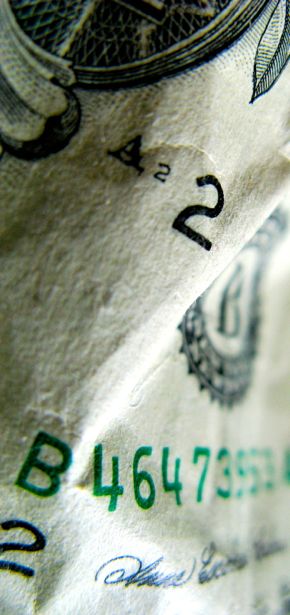Pursuit of Happiness: Can money buy happiness after all?

The prevailing wisdom is that money can buy happiness, or at least higher satisfaction with one’s life, but only up to a point. After about $75,000 of annual income, more money doesn't translate into greater happiness.
Could the prevailing wisdom be wrong? It might be, according to new research by economists Daniel W. Sacks, Betsey Stevenson and Justin Wolfers. Analyzing Gallup’s world data on well-being, they found that happiness increases as income increases — and there’s no upper bound. As they put it, “there is no satiation point beyond which the relationship between income and well-being diminishes.” In almost all countries around the world, more money means more happiness.
But there’s a kicker for Americans. The size of the American economy, measured as GDP, has doubled in the last 40 years, but average well-being has declined. The economists point to a unique American trend as the culprit: rising economic inequality.
Only a small fraction of the American people has experienced big increases in wealth and income. They must be much happier as a result, but they are so few in number that they don’t affect average well-being. Most Americans have been left behind, casualties of the rising inequality trend.
If we wanted to increase happiness for the typical American, what would we do? Policies that taxed the super-rich and allowed average Americans to partake of the fruits of the economy might do the trick.
Are you surprised that money buys happiness without end?
Would you support taxing the super-rich to make the average American happier?
Wayne Baker is a sociologist on the faculty of the University of Michigan Ross School of Business. Baker blogs daily at Our Values and can be reached at ourvaluesproject@gmail.com or on Facebook.


Comments
Sarah Rigg
Wed, May 1, 2013 : 12:34 p.m.
A quibble with your phrasing: This does NOT appear to be "new research by economists Daniel W. Sacks, Betsey Stevenson and Justin Wolfers" but rather "a new analysis of existing research." They did NO original research but rather studied the existent literature, as far as i can tell.
cookiemom
Wed, May 1, 2013 : 11:35 a.m.
Sorry - no. I believe happiness is dependent on one's own willingness to work on developing the necessary traits which will, in turn, create personal happiness as a by-product.